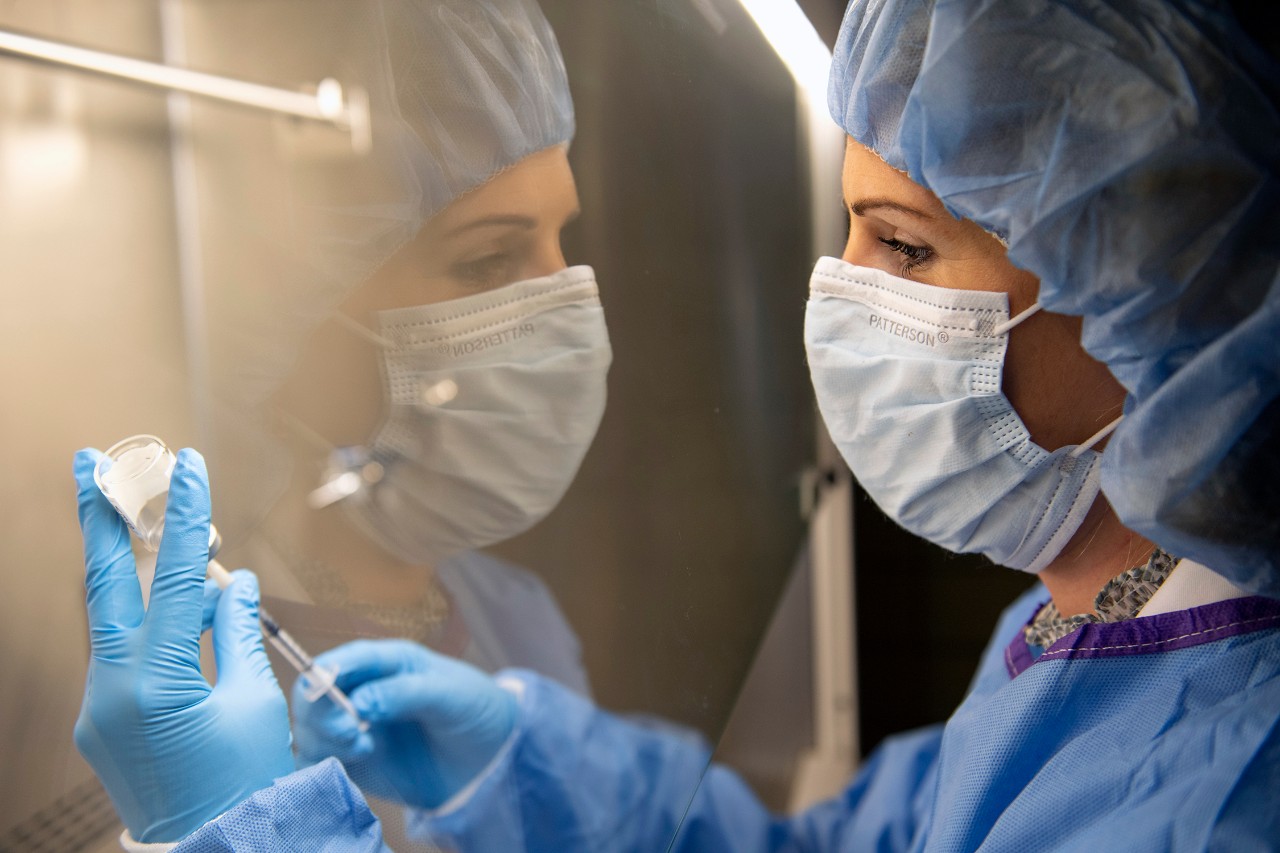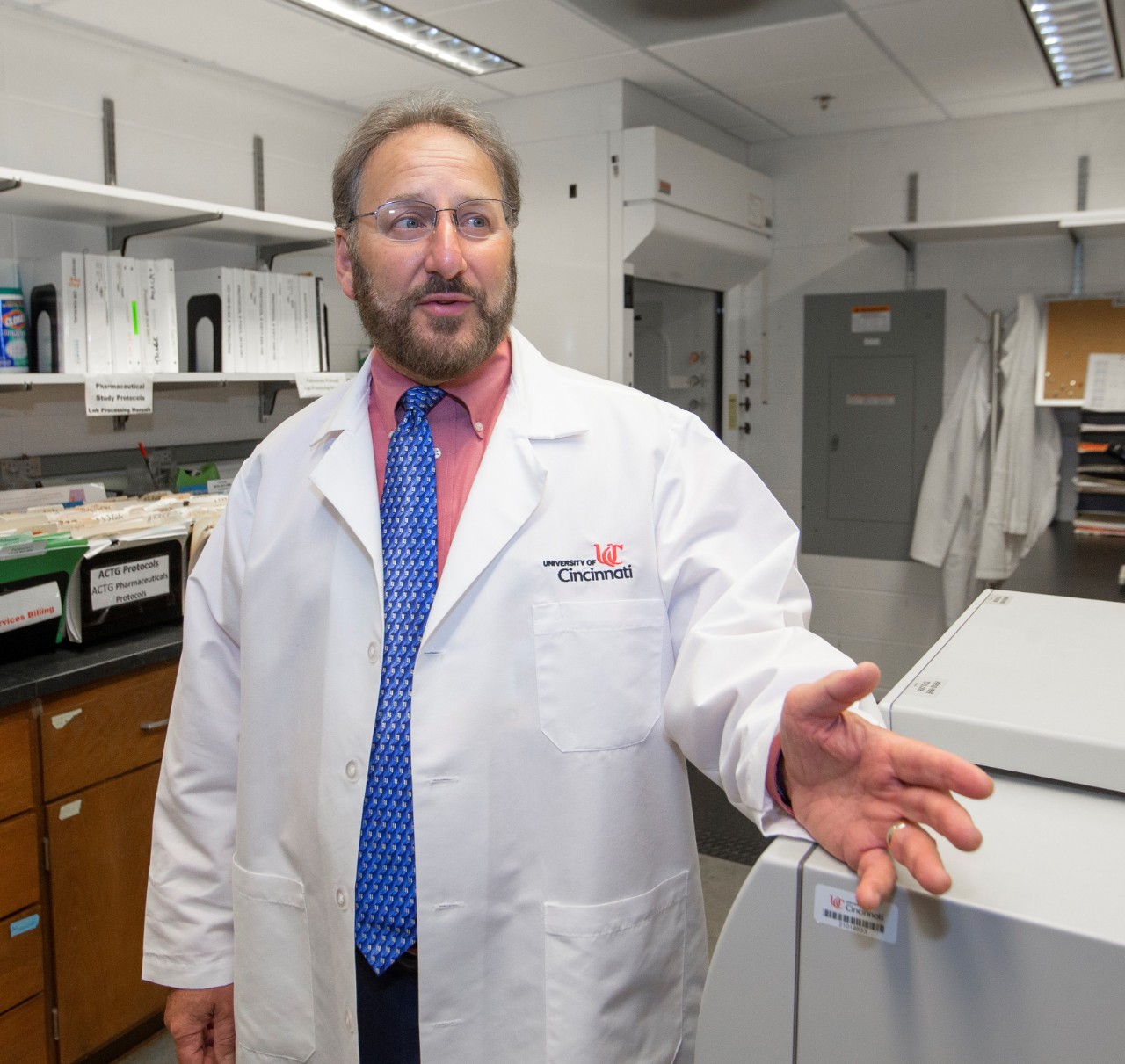
Spectrum News: Doctors explain high COVID-19 death rate despite high vaccination rate
UC expert says a nationwide failure to collaborate is a facdtor
The United States recently reached the one million mark in COVID-19 deaths, despite having a higher than average vaccination rate. While most masking and social distancing restrictions have been eased up in the past few months, the pandemic remains ongoing and in some areas, shows signs of worsening. Medical professionals have a variety of theories of why the pandemic is staying with us.
In a story produced by Spectrum News, one of the experts interviewed was Carl Fichtenbaum, MD, of the Division of Infectious Diseases at the UC College of Medicine.

Carl Fichtenbaum, MD, of the Division of Infectious Diseases at the UC College of Medicine/Photo/Joe Fuqua II/UC Creative + Brand
Fichtenbaum told Spectrun News he believes a contributing factor was the unwillingness to work together as a country to flatten the curve.
“When you’re not really willing to listen, agree and collaborate and look at the information at hand and decide what’s the best course of action,” Fichtenbaum said.
Fichtenbaum said medical professionals have estimated, thanks to the vaccine, about one million American lives were saved, but because only two-thirds of Americans have gotten fully vaccinated, there was never a chance that it could end the pandemic.
“What we’ve realized is if we can’t get coverage wide enough, a vaccine alone is not going to be good enough to stop or end a pandemic,” Fichtenbaum said.
The pandemic also put a lot of things on pause, like routine doctor visits and staying active and eating healthy.
Lead photo/Colleen Kelley/UC Creative + Brand.
Next Lives Here
The University of Cincinnati is classified as a Research 1 institution by the Carnegie Commission and is ranked in the National Science Foundation's Top-35 public research universities. UC's medical, graduate and undergraduate students and faculty investigate problems and innovate solutions with real-world impact. Next Lives Here.
Related Stories
'Paradigm-shifting' study confirms effectiveness of long-acting HIV treatment
February 26, 2026
The results of a clinical trial involving the University of Cincinnati, recently published in The New England Journal of Medicine, show people failing HIV treatments with oral medications were able to be treated successfully using injections.
How do horses whinny?
February 26, 2026
A horse makes the low-pitched part of its whinny by vibrating its vocal cords — similar to how humans speak and sing — and the high-pitched part by whistling with its voice box, according to a new paper published in the journal Current Biology and featured in Smithsonian magazine.
UC receives grant for AI use in medical education
February 26, 2026
The University of Cincinnati is turning to artificial intelligence to help solve a problem in medical training. The College of Medicine was awarded a grant valued at more than $1 million to use AI in advanced physician training through personalized learning.
